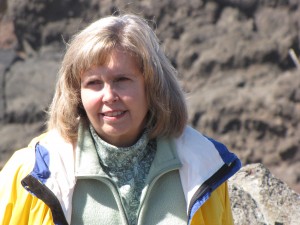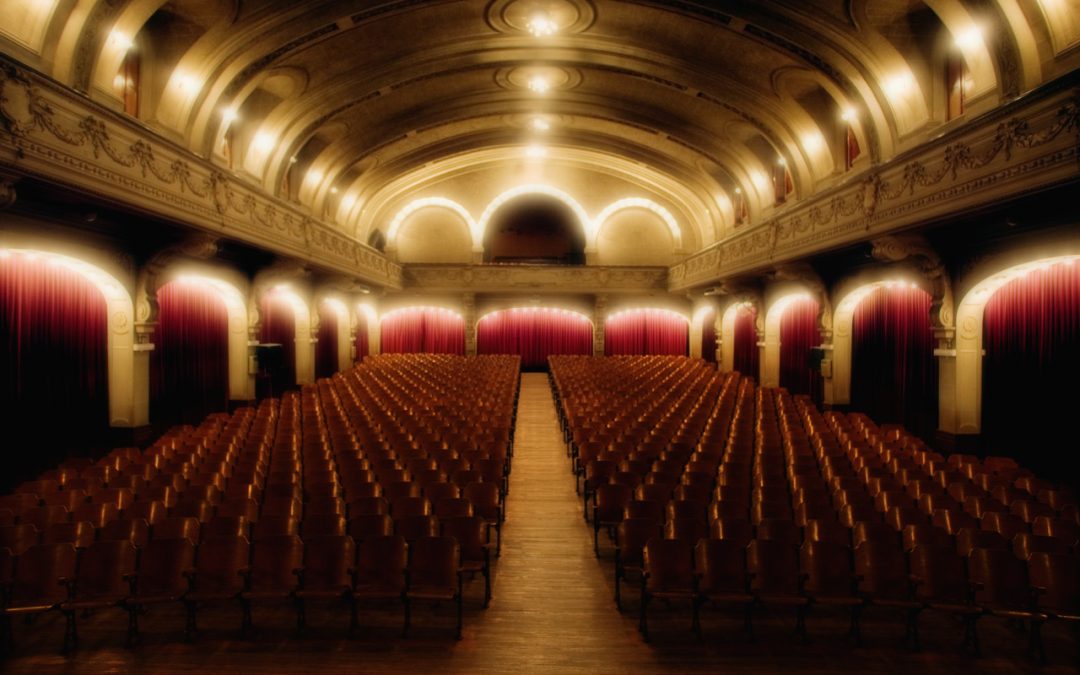
by Jenna | Jul 3, 2013 | Guest Posts
One of the struggles writers often face is the fear that comes up around sharing the truth through our work. It might be the truth about what we think or about who we are. Or perhaps it is about actual experiences we've lived, like those we might share in a memoir.
I've talked to so many writers who are afraid of what will happen when they tell their personal stories or write their memoirs. Fears about hurting people we care about, fears of being rejected or disliked for speaking the truth. These fears can become real impediments to seeing the project through to completion -- and sometimes to even starting it at all!
 When Mary Montanye joined my writing community on a colleague's recommendation, she was almost done with her memoir -- but not quite. She was feeling stuck around moving to the final completion point with the project -- a tough moment for any writer -- particularly because her memoir would set some deep and personal truths free into the world. We were proud to help her cross that finish line with the support of our writing community.
When Mary Montanye joined my writing community on a colleague's recommendation, she was almost done with her memoir -- but not quite. She was feeling stuck around moving to the final completion point with the project -- a tough moment for any writer -- particularly because her memoir would set some deep and personal truths free into the world. We were proud to help her cross that finish line with the support of our writing community.
I asked Mary to share with us about her experience of completing her memoir and of participating in the writing community.
Perhaps you will be inspired by her story to complete your memoir also. :)
Mary, welcome and thanks for being here.
First, let's talk about your accomplishment — finishing your memoir! You joined the community and finished your memoir in your first session, right? What was that like for you?
I did finish it in my first 4-week session. I was very close to the end when I joined the community. I had been working with a published memoirist/writing coach/teacher for quite a few years and had learned how to write a memoir. She’d helped me dive deep, find the truth and the emotion beneath the “facts” of what had happened. This was good and it made for a meaningful story. However, because I was sharing my truth and some lifelong secrets, I also found it very difficult to push through to the end. Regardless of how often I was told that I didn’t have to “put it out there” if I didn’t want to, I knew the next step after finishing a piece of work was trying to get it published or, if nothing else, to share it with family and friends. This terrified me and, as I closed in on the finish, stopped my writing altogether. Getting over this hump and writing "The End" on the final draft felt great! I have to say this was a highlight of my life.
How long had you been working on the memoir prior to joining the community? In what way did the community help you get over the hump to completing it?
I’d been working on the memoir off and on for five years before joining the community. It provided not only accountability and structure but also a connection to other writers who were putting aside their fears to do what they felt called to do. My writing teacher did provide accountability, but her function was to help me become a better writer. Sometimes when you’re always looking to improve, you never get to the place where you can declare something done, especially when you're afraid to declare a piece done, as I was.
What can you tell us about yourself and about the focus of the memoir?
When my husband and I were living and working in Orange County, CA, I bought -- on the spur of the moment and by myself -- a cabin in a mountain canyon in Colorado. My grandmother had lived in that same canyon when I was a child and I had fond memories of it. That action changed not only my life, but my husband's and my mother's lives. The memoir is based on that. How we all got to the point of living in this beautiful mountain canyon and how it affected our relationships with one another. It is also a story of healing from physical illness and childhood abuse.
How did you find out about the writing community and what inspired you to join us?
I was taking an online class — not sure which one it was now — when one of the other participants mentioned you, Jenna. She loved your newsletters and commented that she was learning a lot from you. I checked out your website, was very impressed, noticed that another writing community session was about to begin, and decided to join. I was feeling stuck in the memoir, but had decided it was time to stop working with my writing coach. I was ready to go out on my own, so to speak, and liked the idea of connecting with a group for accountability. Because I travel a great deal, it was important that the group meet online. First, I signed up for one session to see how I liked it. I am now on my second 4-month round. I liked it a great deal!
What have you learned about your writing process?
I learned that, personally, I need structure and accountability. I’ve always been the type of person who follows through with her commitments. If I declare to the group that I am going to participate in a sprint or be on a coaching or welcome call or write for half hour that day, then it’s likely I’ll do it. The community gives me a place for that kind of accountability. And the community gives me a connection to other writers and coaches who are writers themselves so I don’t feel so alone or unique in my creative struggles. I also discovered that there is an ebb and flow to my creative output. Jenna, her coaches, and the other writers in my small group accept that and honor it. This has normalized for me my way of creating and how my day-to-day life can affect my writing.
What were the biggest challenges you faced before joining? Have they changed? What's different now about your writing habit?
The biggest challenges I faced before joining the writing community were (a) believing that my desire to write was not a valid reason to give it time; and (b) that I was a writer at all! Both these challenges disappeared almost completely in the first month, and that’s pretty amazing given that I’ve held onto those opinions for most of my life. Before joining the community, I would go long periods without working on the memoir. During those periods, I struggled with depression because I wanted to write but was always talking myself out of it. I know it sounds strange, but that’s what was going on with me. Participating in the community gave me a reason to show up to the page and for me, that’s huge. Once I’m actually writing all the excuses and fears fall away for a bit and I know I’m in the right place doing what I need and want to do. These days I rarely miss a day when I’m not writing something and therefore I am also much happier.
What advice do you have for other writers?
My advice to other writers is: Don’t underestimate your desire to write. If you have that desire this is something you are supposed to be doing. I compare it to singing for me. I have absolutely NO desire to sing in a band or a choir or even alone in the shower and that’s a good thing, because I also have absolutely NO talent for it! I believe we are given desire to accompany the talents we have. This isn’t to say that there won’t be times when we won’t want to write. Jenna, her coaches and the other participants of the community have shown me this happens to all of us at one time or another. Still, we return to the work because that’s who we are -- writers.
What’s next for you and your writing?
I’m not sure what’s next for me. I still haven’t decided whether or not I’ll publish the memoir. I think I might publish a small printing through a self-publishing venue and let my friends and families read it. Then, after their input, I’ll decide if I want to try to market it. But I do know I will stay on in the community (I’ve just committed to another four sessions) because they are my people and my life feels fuller when I’m connected to them. And I’ll keep writing … whatever it is I feel to write on any given day.
Is there anything else you’d like to tell us?
I’d like to add that I truly believe that we need to be doing what we feel called to do and to find whatever help we need in order to do it. If we do so, we will be happier people and therefore so will our families, friends and communities. There IS time. Whether or not our work is ever published is not the point. The point is that as writers, we write.
Thank you, Mary!
You may also be interested in:

by Jenna | Apr 13, 2012 | Writing Articles
If you’ve ever felt called to doing something artistic or creative, you’ve probably also realized by now that it can be pretty uncomfortable to share that work with other people.
There’s a deep vulnerability that comes with sharing our voices, art, words, acting, performing and other creative expression that can be so unnerving that many people never quite get past the word “Go” and instead sit on the side lines, reluctant to put themselves out there.
- I see it with writers who never quite seem to finish their writing projects or stall when it comes to developing plans to get their work into the world.
- I see it with actors who are terrified of going to auditions and postpone calling their agents until they “feel ready again.”
- I see it with artists who hide their work away in their studios and never make a sale.
I have something to tell you.
This is all driven by fear.
Fear that you aren’t good enough, won’t measure up, don’t have something new to say, that what you say won’t be liked, think you’re being presumptuous to think you deserve a place at the table and more.
I know because I feel ALL of those things myself. Every single one of them.
The key is to not to let the fear stop you. I like to help you look directly and compassionately at the fears and old wounds that hold you back so you can move forward more comfortably and courageously. Usually those fears aren’t so scary when we nudge them out into the light.
An experiment
If you want to experiment with this, write down a fear that’s swirling around in your head right now (I’ll wait, and yes, I really do want you to write it down in black and white on paper).
Okay, now ask yourself, “Is this true? Do I know this for sure?”
Then ask, “How can I reframe this belief?”
Here’s an example:
- The fear: “My script isn’t good enough.”
- Is it true?: “No, I don’t know that for sure.”
- Reframed: “I’m going to focus on the strengths of my script and do my best to make sure they shine.”

by Jenna | Mar 14, 2012 | Writing Articles
Writing, creating, making changes.
All of them require a leap of faith.
I’ve been making a series of leaps over time.
I left my “great” job as an urban designer to become a coach. I put myself out there as a coach for sensitive souls. I’ve grown a business out of nothing.
I’ve claimed my dream of being a writer, and I’m making it happen. One word at a time.
Each of these mega leaps has required many mini leaps.
And I’ve realized that every day when I sit down to write, or put myself out there to be seen in some way, I am taking a leap of faith again.
With every single word I put on the page or on the web, I’m taking a risk that I’ll be seen as wrong, foolish, or stupid. I’m also taking the risk that my work will be valued and well-received. Often when I push the publish button, I DON’T KNOW which of those it will be.
It’s scary.
It requires a leap of faith to see it through.
I believe that all creating is like this. It is terrifying to make ourselves vulnerable in this way. To be seen, heard, and read by people we don’t know who may judge us or not like what we have to say.
In fact, I know there are people out there who do not like what I have to say. And there are probably people who won’t like what you have to say either.
Is that a good reason not to say it?
What about all the other people who want to hear it?
What if?
What if there isn’t anyone who is interested? What if you offend everyone?
First, I doubt that there isn’t anyone who is interested.
But secondly, if it were true that you did offend everyone, what if it was a good thing? What if you pissed us all off enough to wake us up out of the stupor we walk around in? What if it made us fight back against things we don’t like?
Art is a powerful catalyst and it deserves to be treated with reverence.
Treat your art with the fierce and reverent commitment required to bring it to the world. It’s a powerful antidote to the doubt and fear you’re likely to experience along the way.

by Jenna | Mar 7, 2012 | Writing Articles
Being in the spotlight means having your creative work witnessed and responded to by an audience.
It means being read, seen, heard.
Being in the spotlight means having an audience.
Whenever our work is seen, we are seen.
- If you’re a novelist, you’re in the spotlight when you publish your work, whether you publish it online or in print. Writers are in the spotlight through their books, articles, on their websites, at public readings, and in interviews.
- If you’re a blogger, you’re in the spotlight every time you hit the publish button. People are reading your words, thinking about them, and responding to them.
- Artists are in the spotlight whenever you share your creative work, and receive feedback on it. Think of gallery showings, exhibits, and studio tours. Or website galleries online.
- Actors are in the spotlight when you are on stage, on the big screen, or on television. And celebrity actors are in the spotlight anytime they are in public.
- Screenwriters are in the spotlight when the movies you’ve written play on the big screen or when someone reviews your writing publicly.
- Poets, journalists, public speakers, radio broadcasters, and many more professions are seen, heard, and read.
I’m surprised to discover how many people feel drawn to the spotlight even while they (we) also have contradictory instincts toward strongly preferring peace, quiet, home, and solitude as a general rule.
Many artists, actors, introverts, sensitives, empaths, and writers much prefer the solitary life, but still feel some pull to sharing their work and being seen, read or heard in some way.
by Jenna | Jan 26, 2012 | Writing Articles
Elaine Aron, author of The Highly Sensitive Person, says that “almost all HSPs have an artistic side they enjoy expressing … or they deeply appreciate some form of art.” She also says that, “almost all studies of the personalities of prominent artists insist that sensitivity is central.”
Todd Henry, author of The Accidental Creative: How to Be Brilliant at a Moment’s Notice, notes, “It’s not a rule by any means, but many creatively gifted people tend to display a natural tendency toward introversion. Perhaps the isolated nature of a lot of creative work is what calls many of us to our chosen profession to begin with. We love to get lost in the process of moving big conceptual rocks…”
(To be clear, while not all introverts are sensitives, all sensitives are introverts in the classic sense of the word “introversion”: meaning that we recharge our energy by having time alone.)
I think there’s a link between creativity and sensitivity due to the deep, rich, and imaginative inner life sensitives experience. While our vivid imaginations can run amok from time to time, it’s a powerful tool for venturing into new creative territory.
Similarly, our tendency to empathy gives us a great resource when it comes to exploring the emotional depths, which can also be a boon when it comes to creative expression.
Just the other day on Twitter, I joked about my screenwriting:

The challenges of sensitivity and creativity
I notice that the challenging aspect of both being sensitive and creative comes primarily on the audience side of things.
As Elaine Aron puts it, “The difficulty, I believe, is that normally we artists work alone, refining our craft and our subtle creative vision. But withdrawl of any kind increases sensitivity — that is part of why one withdraws. So we are extra sensitive when the time comes to show our work, perform it, explain it, sell it, read reviews of it, and accept rejection or acclaim.”
Some of my private clients and I recently did some work on this topic of “being seen” and discovered the importance of being willing to fully receive acclaim and trying not to block the massive flow of energy that comes with attention from an audience, but rather allowing it to flow through us and around us.
I was also recently reminded through my screenwriting class of the power and importance of intelligent, quality feedback to help us to improve our work.
As artists in the spotlight, we must be engaged in the exchange of our artistic expression for applause, approval, and appreciation from our audience. It is exhilarating, and while it may appear to be purely ego-driven, it is a necessary part of the equation for artistic fulfillment, at least from a life purpose perspective.
So yes, I see a link between sensitivity and creativity, and I think it brings challenges all of its own.


 When Mary Montanye joined my writing community on a colleague's recommendation, she was almost done with her memoir -- but not quite. She was feeling stuck around moving to the final completion point with the project -- a tough moment for any writer -- particularly because her memoir would set some deep and personal truths free into the world. We were proud to help her cross that finish line with the support of our writing community.
When Mary Montanye joined my writing community on a colleague's recommendation, she was almost done with her memoir -- but not quite. She was feeling stuck around moving to the final completion point with the project -- a tough moment for any writer -- particularly because her memoir would set some deep and personal truths free into the world. We were proud to help her cross that finish line with the support of our writing community.




